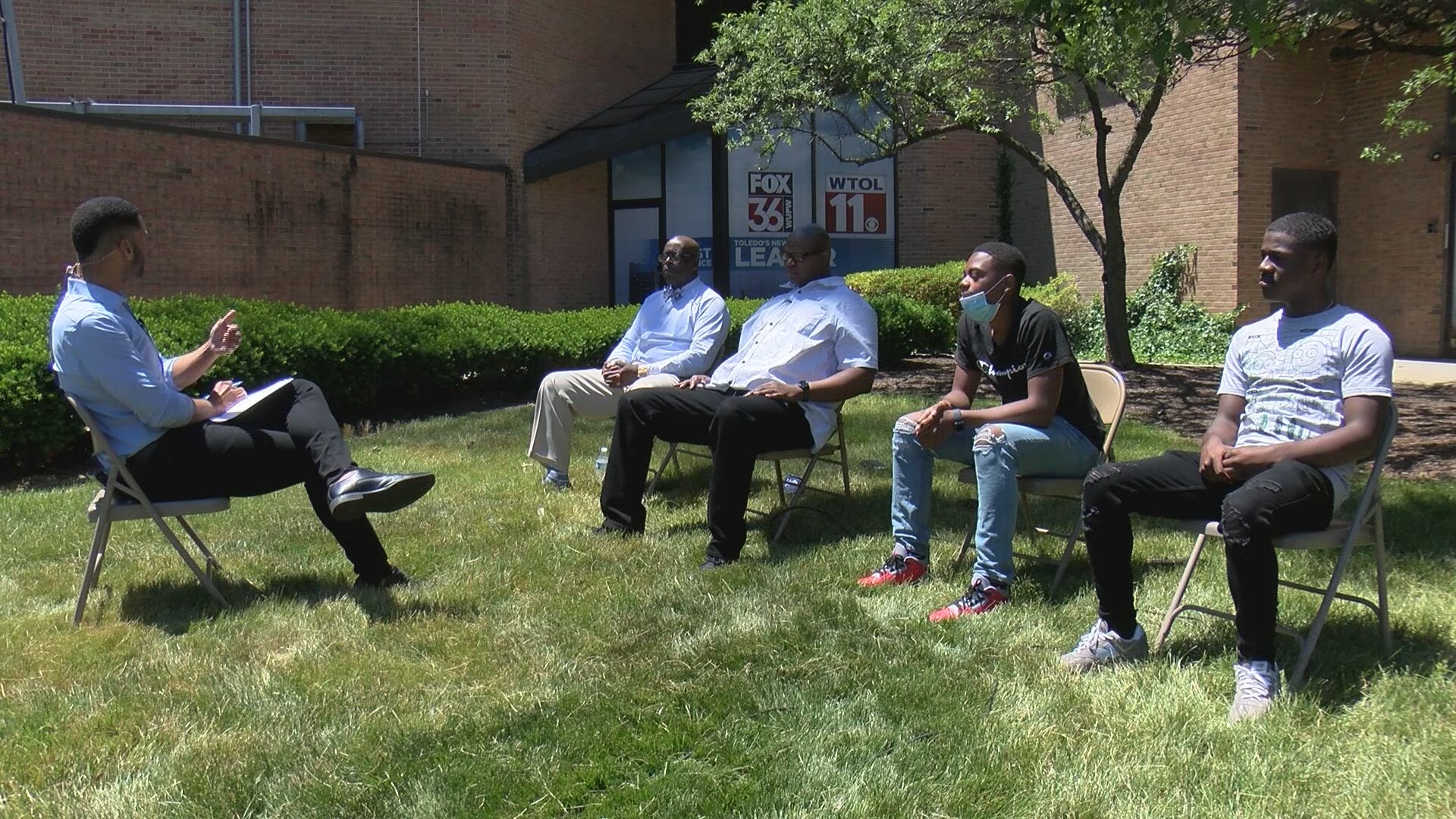TOLEDO, Ohio —
As the war against racism continues, dialogues on race relations are beginning to become more front and center across the country, world, and even right here in our own community.
The death of George Floyd, a black man who died at the hands of a white officer in Minneapolis, has sparked the outrage and protests from a collective diverse group of people around the world for several weeks now - but the frustration has been felt by Blacks for years.
The goal to simply be heard is slowly being answered through voices of change.
Thursday
Growing up Black in America; It’s a dialogue that may seem awkward and uncomfortable, but for many Black households “the talk" has become essential for decades, as they deal with the racial divide.
Andrew listens to the voice of change from three generations of a Black household; Micheal Alexander Sr., Michael Alexander Jr., Romeko Alexander and his brother Michael Alexander III.
The conversation
Q: You have a whole three generations here. Watching the current events, what goes through your head? Have you been here before?
A: Senior: Yeah, I’ve been here before. Um, it’s been different things with young African-Americans going on in our country over time and so I’ve been here with personal experience as a younger adult. And now what goes through my mind, just the other day my grandson was walking to football practice and I find myself in a relatively safe neighborhood, I find myself watching him all the way to the corner, you know. Even though he knows how to interact but, I still find myself babysitting them even though they’re both 15 and 16 but still being protective of making sure they get to where they’re supposed to go.
Q: Junior how is it raising two young black boys in 2020?
A: It’s different for sure. My biggest issue is fear mostly because of the world that we live in. But I do allow a lot of one-on-one talking with my son about the way the world is these days, and I make sure he understands that I know he’s a good person. I know that he carries himself with integrity but until you show that, you may be looked at as a threat until. And so we have those conversations often to always make sure they put their best foot forward.
Q: Is it a concern of yours that your sons may be profiled or even targeted just because of the way they look, their skin color?
A: Junior: Definitely. We just recently moved out to a predominantly white neighborhood, and you know every time they go off to ride their bikes or anything like that, I find myself where it should just be, “Hey, go 'head, go ride, have fun,” we have to have a conversation before they ride off about “what if,” because "what if" is happening these days. So we have that conversation often when they go to leave from around my care. That you know you have to watch out for yourself, you have to be prepared if you are approached or profiled and how to respond. And we do a lot of self-esteem building or things like that to make sure he understands who he is and that he can interact the right way.

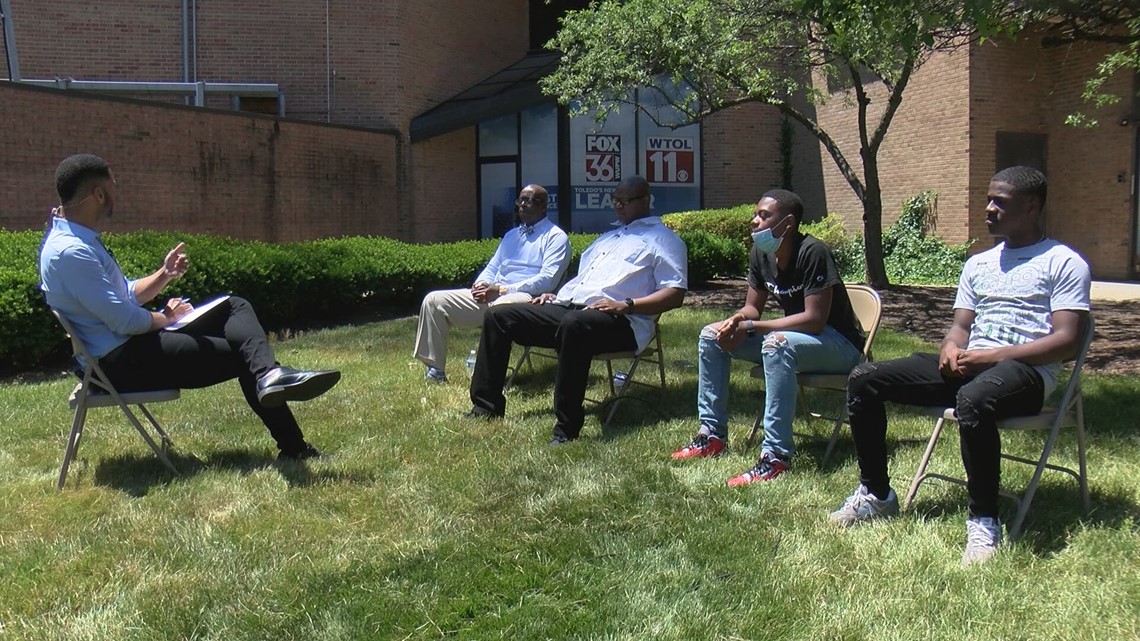
Q: Romeko, do you feel safe being a young black boy here in America?
A: I feel like we're always looked at as a threat. I don’t feel like we're like, umm, really like, we're not looked at as the same as other people because of our color. I feel like were judged by it - by our color and stuff. And I feel like it's not safe. Not yet.
Q: How does that make you feel?
A: I feel like scared, kind of. Cause you never know - it could be me. It could be anybody of my color. So yeah, it just makes me feel uncomfortable.
Q: Does it make you feel less than?
A: Yeah. Because I feel like were judged every time we go out and I feel like we don’t get, we're like ... I just feel like we get judged every time we get out.
Q: Let's talk about "the talk." Unfortunately, it’s a conversation that’s held in many households across the U.S. How does that conversation start with, to you, to Junior, to now your offspring?
A: Senior: Well with my house, (it's) probably more old school, kind of as I do. Not as verbal growing up, as when Mike was growing up, but he went to Scott and so a lot things ingrained in him came because of that level of being at Scott and as an African-American he was involved in the African-American Club and different things and had some great mentors outside of me, per se. So that probably one-on-one I never really had to say, "OK, Mike, here goes the talk," per se.
But as he was growing up it was kinda like how I did things. I could tell a lot of my mannerisms he did pick up, which is a good thing because he's a great father. So for me it was kinda just saying things being in the struggle. He knew I was going to do things that were in the struggle and so those kinda things. So a lot of his (understanding) comes from that thinking and Scott and being active in Afro Club and some of the mentors that were at Scott.
And then from my perspective, just watching how I went about doing what I did as a golfer. He picked up golf when he was in high school, when I played golf and stuff, and my dad and them come from a line of golfers that weren't allowed to do anything but caddy. But they were all African-American golfers and stuff, so I kind of passed that down and able to interact and some of those other areas where we weren't really allowed to, or they didn’t perceive us as golfers, and things like that so it was kind of more of a watching and seeing observing me.
Junior: To piggyback off that, yes, I did watch him a lot and yeah I am a lot like him. I'm soft-spoken. I like to think before I speak, but when I speak I’m going to speak, you know. It’s one of those things I feel like, um, if we take a beat and then respond, it’s going to be a much better outcome.
I’ve learned that over the years from him and definitely through my schooling and things like that. I had a lot of mentors. I tried to gravitate towards a lot of mentors that have a positive perspective and hope and a drive. That’s the thing that I look for, so yeah, I would say I just watched him a lot coming up and I am a lot like him now.

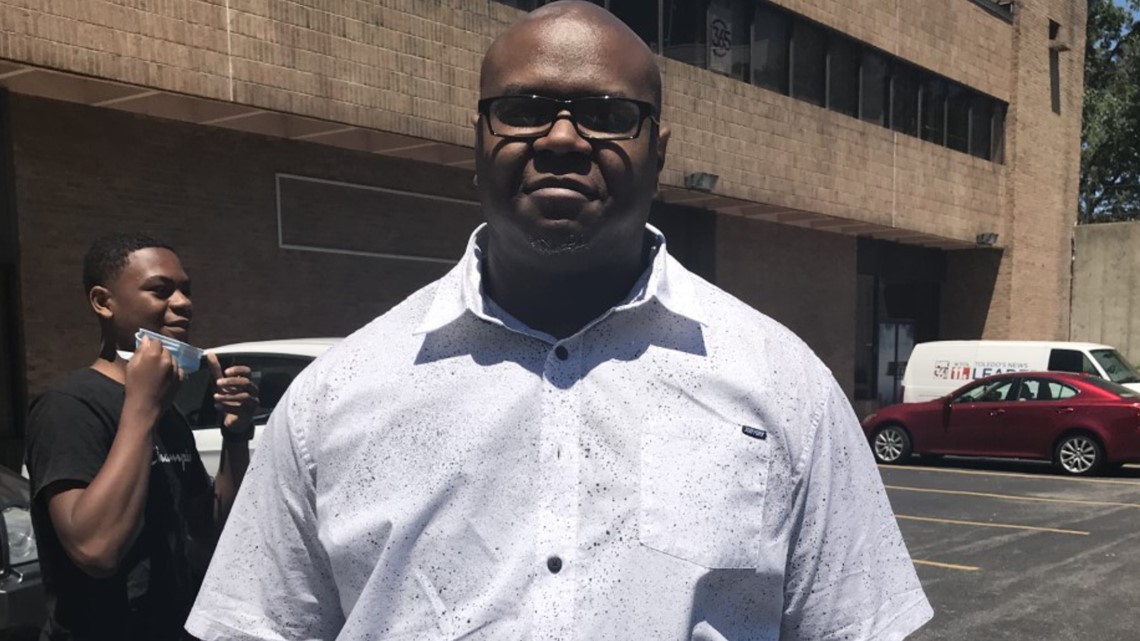
Q: Did you have that race conversation with your sons?
A: Junior: Yes. Yesterday, as a matter of fact, was another conversation. We went for a bike ride to Wildwood Park and we pulled off and you know, I have two other daughters and stepson as well, we pulled off and sat down and I talked to them for probably a good hour, about you know, where we live now and how they are perceived when they leave and what’s going on in the world.
We talked about you know, generational wealth. We talked about a bunch of things because I want them to know they have the same opportunities as anybody else, at any given time and I just wanted them to focus their minds. And I’m sure there will be plenty more conversations. But yeah, we just yesterday had another one. We have it often.
Q: Is this conversation, a conversation that will end now? Or will it repeat itself in 20 years?
A: Senior: It’s good to see some of the stuff happening. I don’t think it's going to end in my generation. There’s hope for as (my grandsons) come (of age). They’re more intertwined with different, diverse groups even in their sports and things like that. So I think that there’s a chance for their generation.
Mine, it’s going to be kind of like what it is now - buck heads and hope for some legislation to change some stuff, still buck heads. But when you think of about it, you got people in their 30s, 40s, 50s, that grew up with this kind of systemic racism that were dealing with - a lot of people don’t want to hear the word “systemic” but it is systemic. And so to get that weeded out, it’s going to take a lot. It’ll have some gradual improvements but it won't be eradicated in my lifetime. We’ll have some improvements, that’s a good thing but it won't be eradicated.
And when you see more organizations like, I work for united way of Greater Toledo, stepping up, (and) making statements that in the past it might’ve been “well our campaign dollars,” you know that kind of stuff, but when you see organizations that are willing to step forward such as that, some of the bigger ones, the NFL and things like that, when they’re starting to use their collective voice, I think that there’s hope for a lot of improvement as we move forward, but it won't be eradicated.

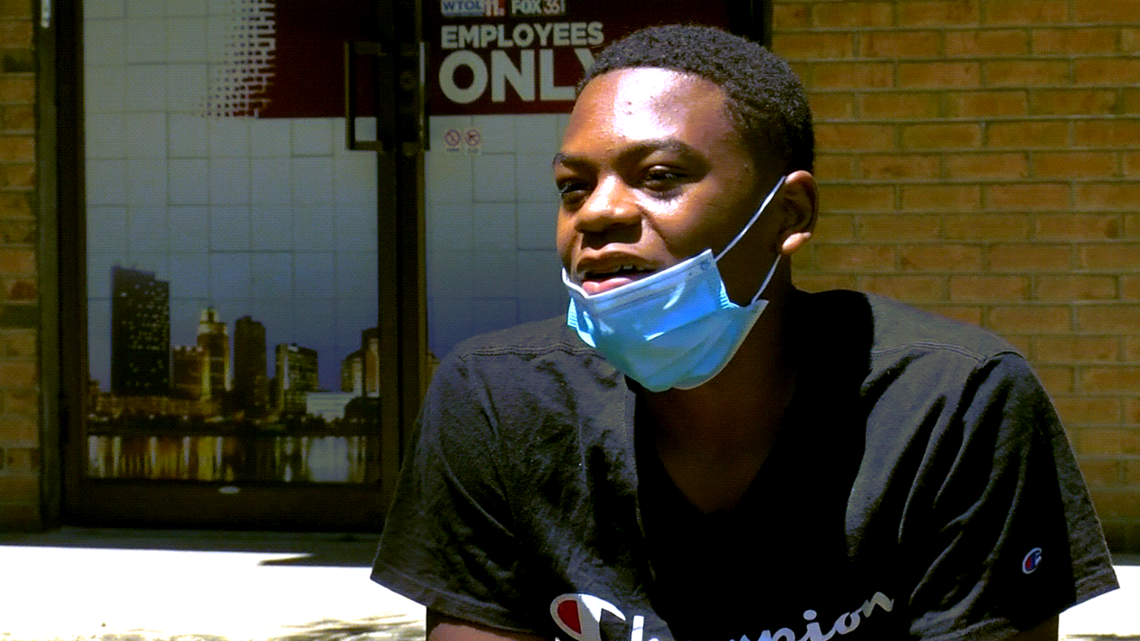
Q: Romeko, do you see this as an issue for your generation to address?
A: Yes, I feel like it should be an issue for my generation and more generations to come. I feel like this conversation should be talked about forever. And I hope the world will change, but if it does change, this conversation is still going to happen, everybody, because it’s never going to go away.

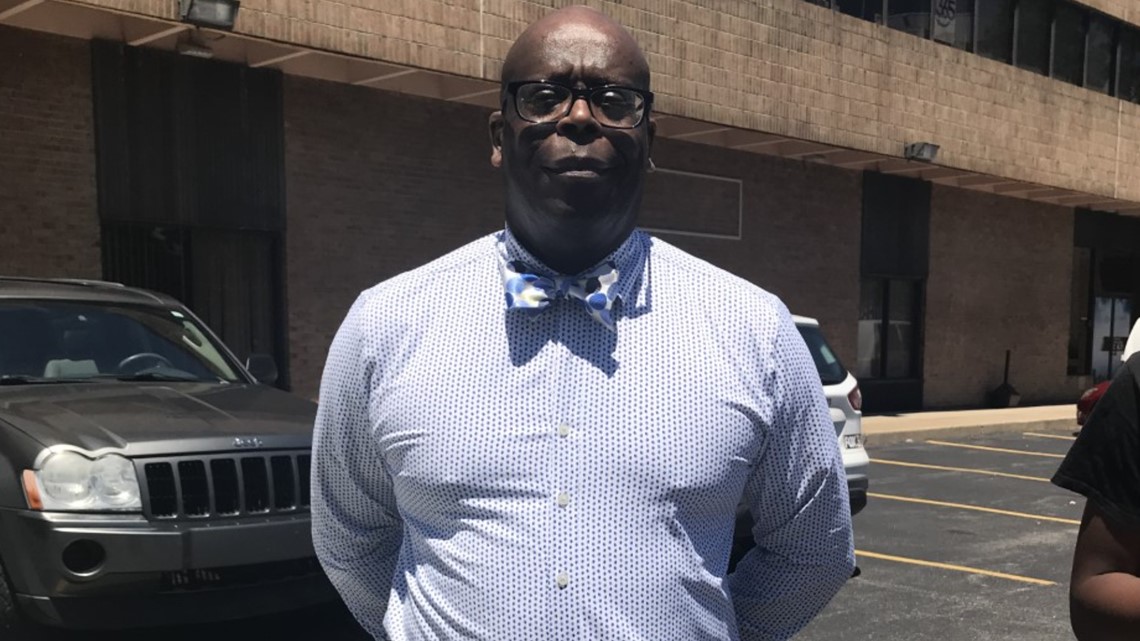
Q: And what does change look like? Is it police reform? Or is it a changing of the heart, the mind?
A: Senior: I think change would look like the shirt that the young lady who just left was wearing, saying, "Legalize being black.” I thought that was kind of interesting. And I think change will look at us as equals.
Like my son said, I moved in my neighborhood - I'm still probably one of the only black homeowners where I live - and he stays in an area as well that’s mostly white population, so I think change will be acceptance. Not feeling like you’re on pin needles when you come in, that you have to prove yourself that you got to do this and beyond to make sure you’re acceptable, and that they’re still are viewing you as “OK they’re going to be decent people” and that kind of thing.
And so I think change is basically not preconceived opinions whether you're black or white, preconceived opinions of that individual. I think that’s what change will look like - accepting the fact that we might do some things different, but coming together as human beings, whether it be even on a religious level where even though I might worship God different than you this that and the other, but collectively as human beings we come together in a space that’s positive whether you are here and I'm here that’s what change looks like. Just acceptance.

